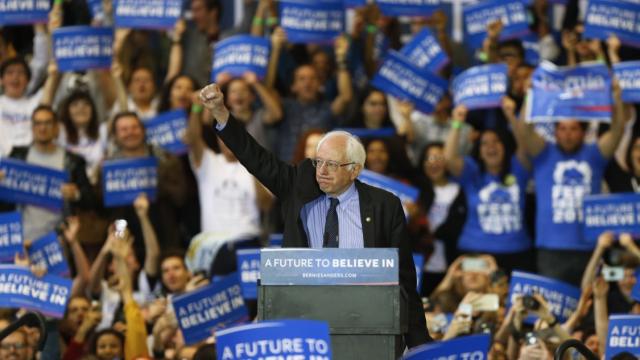
The nation’s final Democratic primary contest has come and gone, but Sen. Bernie Sanders (I-VT) has yet to drop out of the race and formally endorse frontrunner Hillary Clinton. Instead, as many of his supporters wonder where to turn, he issued a call to action.
“We need to get people running for office at every level of government,” he told CSPAN recently. “Because what happens at the state level and the community level are very important. That’s what I mean when I say we need a revitalization of American democracy.”
From Deep Blue California and New York to Deep Red Utah and Nebraska, Sanders Supporters are Answering This Call
Some are teachers, while others are barely out of school themselves. Some are young parents, some are seasoned activists. Some are aiming for seats in their state capitols, others are gunning for a city government role.
As of this week, 12,624 people from every congressional district in the country have signed up through Sanders’s website to say they’re interested running for local office. An additional 6,650 people have signed up to volunteer on a progressive local campaign. “This will be part of transforming our country from the bottom on up,” Sanders said.
But the desire to run for office and the ability to win are very different beasts.
The first-time candidates who spoke to ThinkProgress described the difficulties they have faced navigating complex legal waters, raising funds, and beating candidates with establishment backing and better name recognition. Some scolded Sanders for not encouraging his supporters to run sooner, noting that the deadlines to get on the ballot in many states has long passed.
Others voiced hopes that the candidate who had raised so much money and revolutionized online campaigning would send some concrete organizing and financial support their way.
Meet the Young Progressives Who have Vowed to Take Sanders’s Political Revolution Local: From Zuccotti Park to the State Senate
Though a longtime activist who has occupied public parks and risked arrest protesting fossil fuel projects, Ash Anderson said he has spent the last few years “laying low.” He got a political science degree, had two children — now ages one and three — and set up a small solar power business in the Utah area where he grew up. All that changed when Bernie Sanders launched his longshot bid for president.
“I saw his announcement speech and I knew I couldn’t lay low anymore,” he told ThinkProgress. “Then, by early March, Bernie’s campaign had blown away anyone’s expectation. I thought, ‘My gosh, this is everywhere, including in my community. All these people are looking for an honest voice in the mainstream.'”
In Sanders’s campaign, he saw an answer to the shortcomings of the Occupy movement, which brought the concept of the 1 percent vs. the 99 percent mainstream, but fizzled out without making real gains.
“I saw this huge populist energy take off and it went all over the world,” he said. “I could see the kindling for a big movement. But Occupy didn’t have a face or a consistent message. We ended up learning that if we wanted to change policies, we needed to be the decision-makers.”
This spring, a friend urged him to throw his hat into the race to represent Utah’s District 8, in which a Republican incumbent was running unopposed.
“I don’t have money to finance a campaign. I have little kids to support,” he told ThinkProgress by phone, as his daughter yelled for him in the background. “To run, you have to reach people, and that costs money. And if you’re a state level person, you don’t get a bunch of press attention. People don’t even know you’re running unless you send out mailers or reach them somehow.”
Anderson said that whatever becomes of the Sanders campaign, they and the Democratic Party should do more to support candidates like him, and help convince to cynical young voters to stay engaged.
“We need to remind people that local elections matter,” he said. “What really concerns me are these ‘Bernie or Bust’ people who say they won’t vote this November. I just want to shake them. Do they know there are other people on that ballot? They are your neighbors and they can have a much bigger impact on your lives than the president.”
If They Can Make it There, They’ll Make it Anywhere
Rob Curry-Smithson teaches U.S. history at a public high school in Manhattan, but when Sanders put out a call for supporters to step up and run for local office, he began picturing a different kind of public service. Today, he identifies as a hardcore “Berniecrat” running for a seat in the New York State Assembly.
“As a government employee, I’m impacted by the state’s political decisions more than most people,” he told ThinkProgress. “I have seen some of the problems at the state level with Common Core and the charter school model, and I want to fight for a community model that respects parent and teacher voices in the schools. I also think it’s reprehensible what’s happened to the funding of our city and state university system. There was a time we had free education, and [as a member of the Assembly] I could try bring that back.”
Curry-Smithson, who began gathering signatures to get on the ballot a few weeks ago, said his resolve to run was solidified after witnessing the botched primary election in his district in April. More than 120,000 Brooklyn voters were improperly purged from the rolls, and the purge disproportionately targeted Latino voters. “I was outraged at how our election was handled,” he said.
But before he can push for voting rights and education reform, he has to beat a candidate with more funding and local endorsements. “It’s an uphill battle,” he confessed. “I’m out there handing out black and white fliers I printed myself, while they have leaflets mailed out to everyone’s home. I haven’t even begun any fundraising, and I’m up against the old political machine.”
He is taking heart, however, not only from Sanders’s campaign, but from the primary results on the GOP side.
“We’ve seen this year that you can throw a lot of money at an election, but it goes nowhere if you don’t have the right message,” he said. “Look at Jeb Bush.”
Win or lose, he says, he hopes his bid motivates other young progressives to try their hand at local politics. “Focused on presidential race is easy, but change happens from the bottom up,” he told ThinkProgress. “I teach my students that Roosevelt was only as good of a president as he was because there were social movements pushing him. And we’re going to have a much better presidency from Hillary if there is a movement pushing her. And it needs to be a real movement, and that means doing more than liking a Facebook post.”
Veronica Aveis is tired of hearing the message “that young people should wait their turn.”
“The rhetoric is that we need to get more experience,” the first-time candidate told ThinkProgress. “But there are so many things that primarily impact young people, like having student loans that are more than a mortgage, or paying for tampons that are taxed as a luxury instead of a necessity. Those are the kinds of conversations that only happen when people who are impacted are at the table.”
Also a Brooklynite, just a few years out of graduate school, she is running for a little-known Democratic Party position called “district leader.” In that unpaid role, she would help her State Assembly member vet judges and other appointees, and take the pulse of the community on a range of issues. “It’s as hyper-local as you can get in politics,” she explained.
But even winning the most local of races brings its challenges, and Aveis says Sanders and the Democratic Party could be doing a lot more to recruit and support first-time candidates like her.
“The biggest help would be funding pro-bono attorneys to help walk us through the legal minefields,” she said. “For instance, I didn’t know you couldn’t just print petitions to get on a ballot; you have to have someone formally draw it up for you. Then there are rules around who can even volunteer for you gathering signatures. I’m trying to figure this out and I feel like I’m building a plane as I’m flying it. So it’s one thing for Bernie to say, ‘You should do this,’ and another to explain what it will take and where to get help for the complicated legal system.”
Aveis also worries that Sanders’s call to action came too late for many people to get on the ballot for this fall, posing the risk that their energy and momentum will fizzle out. “These folks being called to service will now have to wait six months or two years,” she said. “So I wish it had been a narrative of Bernie’s campaign from the beginning.”
The Land of Lincoln
One of the highest profile “Berniecrats” in the country just won a local position in one of the reddest states in the nation: Nebraska. Jane Kleeb, a Sanders supporter and environmental activist best known for leading the successful fight against the KeystoneXL tar sands pipeline, was elected chair of the state’s Democratic Party, easily beating out Hillary Clinton supporter Chuck Hassebrook. In that role, she hopes to recruit more women and people of color to “stand up and run” for local office.
“A lot of people don’t know this, but we actually have a very strong and increasing Latino population,” she told ThinkProgress. “So for us, it’s important to make sure the officials coming out of those areas look like the places they represent.”
Kleeb believes Sanders’s call to action will help this recruitment process. “He’s giving confidence to grassroots leaders, to people who have never thought about running for office before,” she said. “They’re saying, ‘I can do this. I just organized my friends to caucus, why can’t I run for the school board?'”
At a time when many Sanders supporters are reacting to his loss by professing feelings of cynicism about electoral politics in general and the Democratic Party in particular, Kleeb hopes to win them back over by focusing on the issues.
“People have been in the streets this year fighting against climate change, and for immigration reform, and spreading the message that black lives matter,” I want to bring those movement voters into the party, and I want to bring the Democratic Party into the streets.”
Already, she has helped Nebraska push through a strongly worded resolution on one of Sanders’s key fights: abolishing the role of unelected superdelegates in choosing the Democratic presidential nominee. Next, she hopes to fight to expand Medicaid to cover more low-income residents, ban assault weapons, and continue protecting farmers from having their land seized by private companies using imminent domain.
“For such a Republican state we’ve already passed some amazing progressive laws,” she said, citing the recent death penalty ban and law granting drivers licenses for undocumented residents. “We’ve still a long way to go. But there is a populism, that started our state to begin with, that lives on today.”
3 WAYS TO SHOW YOUR SUPPORT
- Log in to post comments

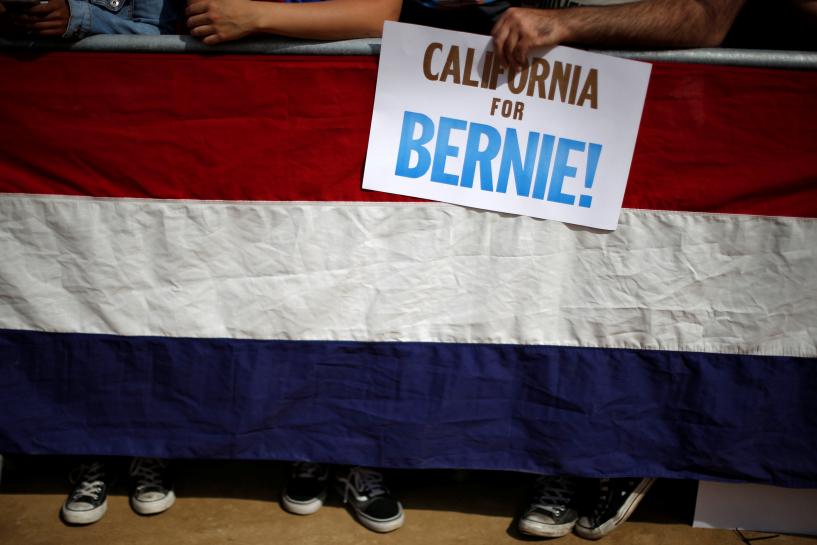

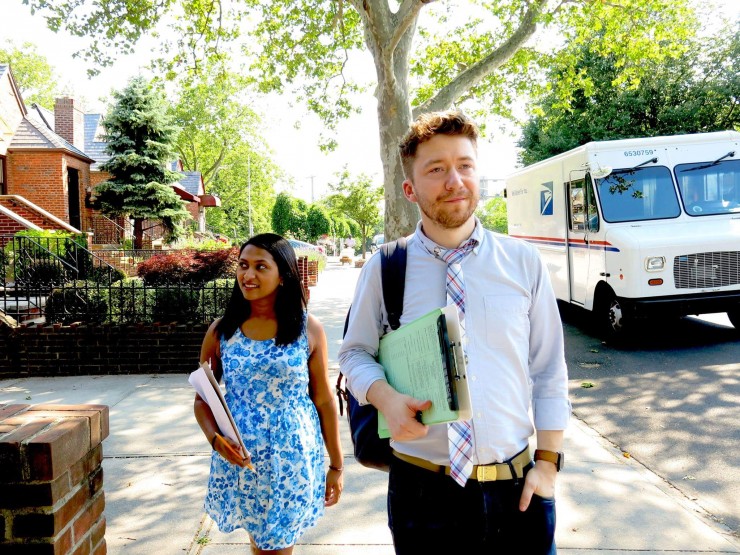

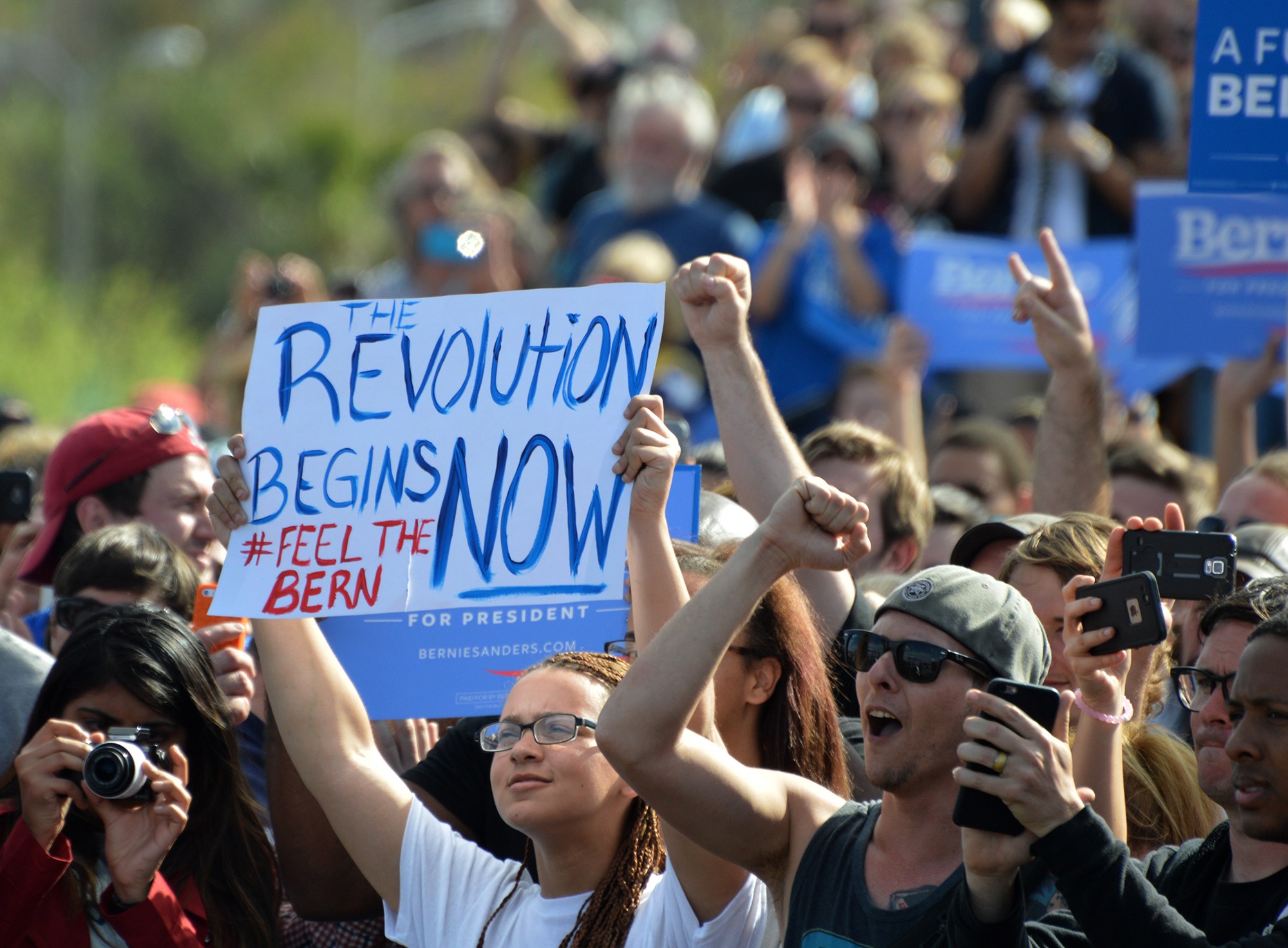
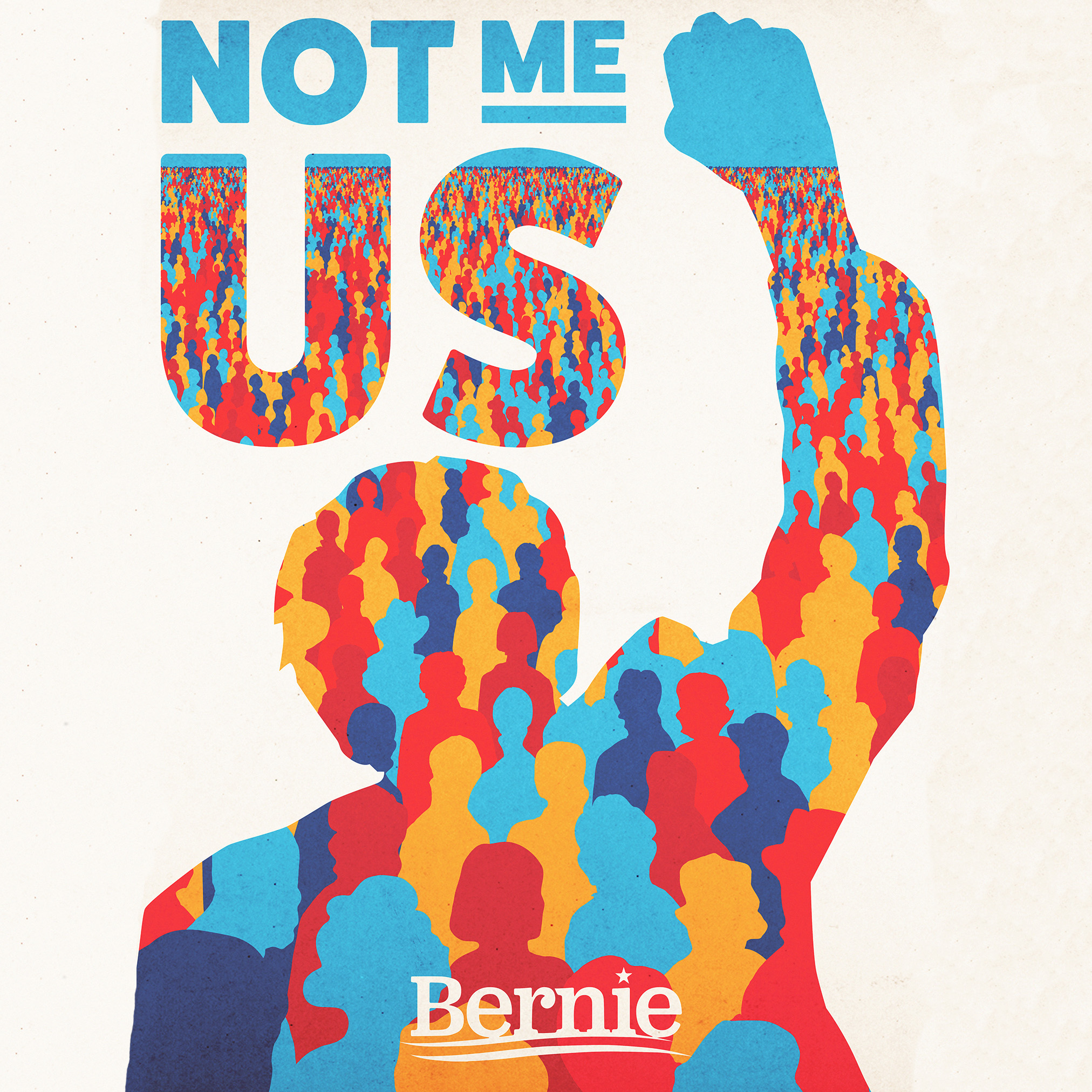
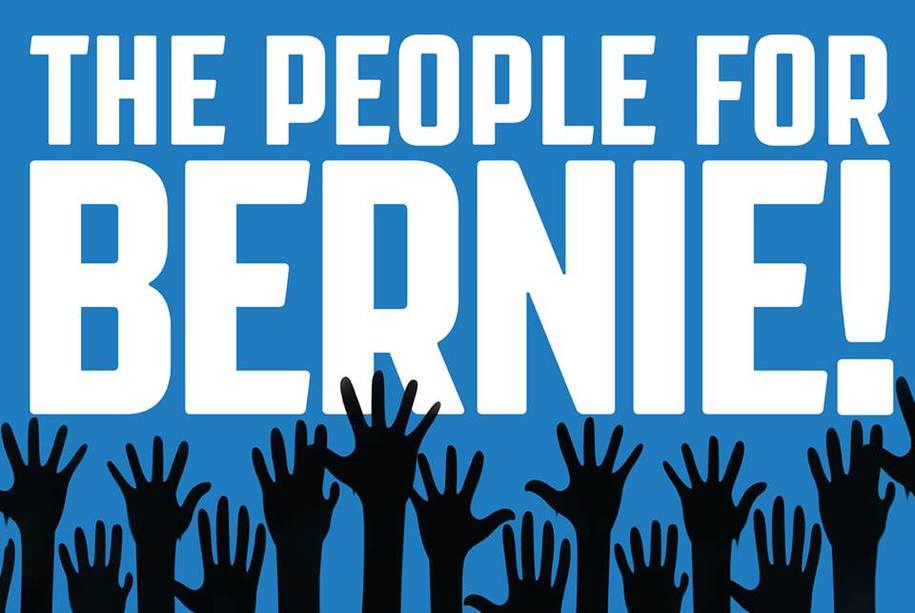














Comments
Larry replied on
Get Out of the Bleachers and Get Onto the Playing Field! - Now!
What most affected me about Bernie's campaign is that pretty much each plank of his platform was an echo of the Occupy Movement. Bernie is a great example of how Movements can transmute from street protests into electoral politics, like Spain's 15M becoming Podemos.
I was elected as a Bernie delegate to the WA State Democratic Convention. The gist of my pitch to come to Philiadelphia was that Bernie is only the beginning and his campaign was and is not about him; it's about the values and the issues, which are not going away until they are implemented and resolved, respectively.
I said to the thousands of people on the Convention floor and I say now that the true agents of change are YOU. If we want different political results we have to elect different people: not career politicans, not politicans at all. Just people who are well-intentioned, reasonably well-educated and who want to do their part to make the world a better place, to manifest the Occupy message that another and better world is possible.
The threat to the habitability of earth itself, vast income and wealth inequality and their economic and political distortions, student and other forms of debt so great that they're tantamount to indentured servitude, cruel racial injustice: new forms of "Jim Crow" from black people being regularly shot to the school-to-prison pipeline, sexual and gender discrimination that would throw us back to the pre-Roe v. Wade and pre-Stonewall eras, poverty in places in America that rivals the 3rd world, all of these and more are human-made problems, all capable of resolution. But only if we elect different people. Non-politicans.
But to do this, we need YOU to get out of the bleachers and onto the playing field. If you don't do this, who will? And if not now, when?